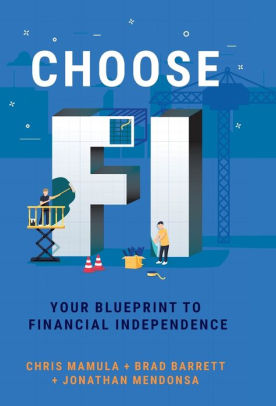Want to Know How to Retire Early? Start Asking the Right Questions.
We first became truly serious about early retirement shortly after our daughter was born about 2 years ago. Before this, the “grand plan” was to just save as much as possible to be able to transition to retirement, or working a minimal amount to make some money to support us without burning through our savings. We would then live the lifestyle of dirtbags in the summer and ski bums in the winter. Then after 11 years of marriage and our careers, just as we were getting ready to begin this transition, we got the surprise of a lifetime in the form of a baby girl. Now more than ever, we wanted to live a different lifestyle. We already placed a premium on our time. We never seemed to have enough time to do all of the things we wanted while working traditional full time jobs. Now, on top of everything else, we added this new human who would be the central focus of our lives from this day forward. With all of the responsibilities of taking care of another life, we had a major epiphany. OH SHIT…WE HAVE NO IDEA WHAT WE ARE GOING TO DO!

Financial independence and early retirement became more important to us than ever. However, we had no idea where to even start. We didn’t know anyone who was even thinking about doing what we wanted, let alone having done it. We used a financial adviser who basically laughed at us every time we discussed our plans to retire early. With a child, we knew we needed a real plan. With no idea where to turn for advice, I looked to the almighty. GOOGLE. I typed in “early retirement” and punched enter. The first option was a site called Early Retirement Extreme (ERE). I had never even heard of a blog before (We’re still not even on Facebook). All of a sudden, I was spending hours reading ERE every chance I had. Some of it spoke directly to me, but other things seemed so ridiculously extreme that I could never envision it for myself, let alone convince my wife this was a better way of life for us. We were used to a fairly conventional lifestyle other than a bit more adventure than most and a relatively high savings rate. Here was this guy on the internet saying that you should change everything and writing about living on about $7,000/year with no car, cell phone or cable TV, and eating lentil soup for most of his meals. Everything seemed too extreme, too radical and it sounded like too much sacrifice, even for a couple of aspiring dirtbags. I started to tune out and look for other resources around the internet, but for some reason I have kept this fascination, and even sense of reverence for ERE.
I recently found the Radical Personal Finance podcast which I reviewed in this recent post. While scrolling through the show topics, one caught my eye. There was a 3 hour interview with Jacob Lund Fisker of ERE. Driving to a recent climbing trip, Mrs. EE and I listened to it. After hearing this interview, it made me start to re-think everything. Maybe I didn’t find the answers I was looking for the first time I read Jacob’s work because at that time I was still asking the wrong questions. I was simply looking for quick fixes, investment tips, knowing how much money we needed to retire, etc. There are a few key points that I now understand after listening to this interview that caused the lightbulb in my head to click on.
First, most financial philosophies focus solely on acquiring and investing money. Jacob’s philosophy focuses at least as much on acquiring skills and knowledge. You can easily pay someone to do anything from cleaning you house, managing your money, mowing your lawn, cutting your hair, fixing your leaky faucet, changing the oil in your car or cooking your meals. You could also learn to do any of these things equally well yourself. In the end, the result is the same. The task is done. Most people would even argue that it is more efficient and therefore cheaper to pay someone to do all of these things for you. However, the next time and every time there after, when any of these situations arise in the future you will have to continue to pay someone to do it for you. This requires either massive assets or continued work to stay on the work→earn→spend→repeat treadmill where you never end up going anywhere. Focusing on acquiring skills and knowledge, while less efficient in the short-term, is the easiest way to require much less money to retire. At the same time, it allows you to save more money by not paying people to do everything for you, quickly increasing your savings rate. Instead of relying on others for everything, through your skills and social network you can become essentially self-sufficient allowing you to retire with much less money.
Possibly as important, or even more so, is that you can expand this philosophy to happiness. You can be happy going to amusement parks that will cost you money or state parks that are free. You can be happy spending $1000 taking your family to a single professional sporting event or spending virtually nothing playing the games in your backyard. You can enjoy staying in 4-star resorts at a few hundred dollars per night when you travel or camping in a tent for a few dollars per night. None of these choices is inherently good or bad, right or wrong. However, if you can figure out how to be happy with the simpler options, it is very easy to maintain this forever. If you can’t be satisfied without extravagance, and you associate happiness with spending it’s back to the work→earn→spend treadmill forever unless you can save a fortune.
Finally, the biggest challenge to early retirement planning is that it is impossible to predict the future. Some of the biggest challenges are that inflation is unknown as is what will happen with financial markets. Both factors are out of your control. The conventional approaches for dealing with these issues are through diversification, saving much more money than you may need and/or buying expensive insurance (annuities). All can be expensive, and none fully protect you from worst case scenarios. However, by adopting the ERE philosophy you are much less vulnerable to these risks. Look at any of the examples above and imagine someone who chooses the more expensive or cheaper options. If you are paying $25 for a haircut and $150 to have someone fix your sink, and inflation goes through the roof, your haircut may cost $100 and your sink $500. However, if you can cut your own hair, it will always be free and if you can fix your own sink, you will have to deal with more expensive parts, but not inflation on the labor. Likewise, if you require your $1000 outing to the ballpark to be satisfied and happy and your investments tank, you may be very disappointed when you can no longer afford this luxury. However, if you are happy with playing the game in the back yard, this will always be free and available to you. By focusing on increasing skills and knowledge and seeking true happiness, you can in many ways make yourself immune to, or at least insulated from, these things that are out of your control and would take a small fortune to try to insure or diversify away in traditional manners.
I’m not sure if listening to this interview clarified ideas from the ERE blog, or if I am now understanding the answers because I am beginning to figure out what questions I should be asking. After giving the ERE philosophy another look/listen, I realize that it is extreme only in the fact that it is extremely old and radical only in how radically simple that it is. This philosophy can be summed up in the ancient proverb: “Give a man a fish and he’ll eat for a day. Teach him to fish and he’ll eat forever.” Never has this been more true than it is today. If you’re looking for answers for achieving financial independence or early retirement and things aren’t making sense, maybe you are just asking the wrong questions.
*Thanks for reading. If you enjoyed this content, you can find my current writing at Can I Retire Yet?. Enter your email below to join our mailing list and be alerted when new content is published.

Top recommendations
This is a really great article, amigo. You hit the nail on your head with your analysis.
If you follow through on the stories of many of those with alternative lifestyles, they’ve developed a massive inventory of skills that lessen their need for money. Consider that this can be done at the low-income end and also at the high-income end. (Consider the skills that politicians have/use that allow them to live luxurious lifestyles without the need for a high-paying job in some cases.)
The other benefit to solving the skills problem is that, even if you do run out of money, you have many backup plans for income if you need it. People who are in the work-earn-spend paradigm are petrified of losing their job. People who have a diverse array of skills can always find a way to replenish their money if they need it.
I’m sure that Jacob and MMM are earning more now than they ever earned in the past. But it’s the acquisition of skills that enabled that.
Thanks for the positive feedback. I’m really liking what you’re doing with your podcast. It has really been making me think and challenge my way of thinking.
EE
Just a quick question-when they talk about savings rate is that based on gross income or net income (post taxes)?
Anu,
Good question. I don’t know that there is a right or wrong way to calculate it.
I think the most common way as explained by Mr. Money Mustache is net. See this recent post for MMM’s full explanation.
http://www.mrmoneymustache.com/2015/01/26/calculating-net-worth/
This is basically what we have traditionally done. Mrs. EE and I each work and pay taxes. We spend her salary. We save mine. Simple and easy. Since we have always made approximately the same we call it 50% (thought it probably varied between 40-60% over the years).
He then uses this percentage to allow you to figure out how many years it would take to reach FI.
http://www.mrmoneymustache.com/2012/01/13/the-shockingly-simple-math-behind-early-retirement/
I personally think there is something to be said for figuring out savings rate as a percentage of gross pay. After all, taxes are an expense that can be controlled with good planning and at the end of the day, you want to save as much as possible. Focusing on savings as a percentage of gross is a good way to do that. Honestly, I’ve just been too lazy to ever actually calculate it. Sounds like the topic for a future post.
Thanks for the question.
EE
Great site. Have bookmarked it. Thanks 🙂